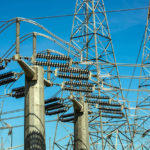Members of the Airline Operators of Nigeria (AON) have unanimously expressed their dismay over the unguarded statement of the Chairman, Senate Committee on aviation, Senator Smart Adeyemi threatening to invite foreign airlines to take over domestic operations over flight delays and cancellations.
The lawmaker made the statement during a joint visit of both the Senate and House of Representatives oversight visit to the aviation agencies.
Reacting to the threat which has since elicited criticisms across the sector, the airline operators in a statement issued besides expressing their disgust about Adeyemi’s outburst, took time to highlight factors that they attributed to the flight delays and cancellations.
In the issued statement signed by the President of AON, Alhaji Yunusa S. Abdulmunaf, Chairman, Azman Air and the Vice President, Mr Allen Onyema, Chairman, Air Peace and endorsed by all other operators, the operators declared: “AON would like to state unequivocally that such comments only serve to aggravate sentiments and send out the wrong message to passengers and the general public.
Commercial airlines globally, Nigeria inclusive, are set up with strict adherence to flight times. These schedules are put in place not only for the benefit of customers but also to allow the airlines to maximize the use of their aircraft in order to meet up with their laid out targets over a period of time and ensure their safety and sustainability.
It is therefore not in the interest of any airline, whether in Nigeria or anywhere else, to delay or cancel flights as this has severe financial and image consequences. For these reasons, delays and cancellations are therefore the last things any airline wants.
While flight delays and cancellations occur all over the world, it is, however, instructive to note that in Nigeria, 80% of the causes of delays and cancellations are due to factors that are neither in the control of airlines nor caused by them.
According to the operators, some of the more prevalent causes of delays and cancellations include but are by no means limited to the following: “Weather – Due to the lack of basic navigational and visual aids at most airports across the country, airlines are forced to delay flights unnecessarily, waiting for visibility to improve either at departure or destination airports. This is the major cause of delays in the months of October to March every year (with the harmattan dust haze and fog) and this impacts the entire system significantly. Almost every morning, the first flights to several destinations are delayed, affecting the schedule of the airline for the rest of the day. This issue of lack of navigational and visual aids at most of the airports in the country accounts for more than 50% of the delays in the system, for which airlines unfairly always take the fall. This would easily be avoidable if the requisite infrastructure was put in place across the network of airports. Thankfully, airlines will never jeopardize safety, but will rather choose to wait for weather conditions to improve or be forced to cancel flights if the situation persists.
“Inadequate aircraft parking space due to congested Aprons – Both domestic terminals in Lagos (popularly known as GAT and MM2), which are the main hubs and turnaround points for the vast majority of the local industry, are severely capacity constrained to the point of constituting safety hazard to the industry. Unfortunately, lack of planning by the concerned authorities over the years has led to a deficit in airside infrastructure at both terminals, causing aircraft to park in a chaotic manner, where many aircraft get hemmed in by other aircraft.
Apart from the chaos and unsafe conditions this congestion causes, it results in unnecessary delays as aircraft are frequently forced to wait for other aircraft to be pushed back first before they can depart.
“Restrictions caused by Sunset Airports – Again, because of a deficit in navigational and visual aids, most of the airports in Nigeria are open between 6 am and 6 pm. Once an airline misses this window as a result of one or more of the above-mentioned delays, airlines are forced to cancel scheduled flights to such destinations.
“Delays due to VIP movement – The practice of closing the airspace for security reasons to allow the President, Vice President or other VIPs to either depart or arrive, is a significant causal factor of unpredictable and unforeseeable delays in the system. This is no fault of airlines but yet another delay cause for which the domestic airlines take the fall for the entire system on a daily basis.
“Frequent Bird Strikes and Foreign Object Damage (FOD) – Bird strikes and Foreign Objects damage many aircraft during landing, taxiing or takeoff at airports across the country, thereby forcing the aircraft to be parked abruptly until a replacement can be marshalled to operate a flight. A lot can be done about this by the concerned authorities, but the airlines again bear the brunt of the failure to address this key issue.
“In addition to the primary causes of delays in the domestic airline system highlighted above, there are other ‘systemic’ issues that limit the ability of domestic airlines to operate seamlessly and efficiently. These are but by no means limited to the Unavailability and the ever-rising cost of Aviation Fuel – JetA1 today costs above N410 in Lagos, N422 in Abuja and Port Harcourt, and N429 in Kano per litre and has continued to rise fast and steadily. On top of the continuous rise in the fuel price, fuel supply is at best epileptic at several airports thereby causing delays. Supply nationally is at best unpredictable and several times a day, airlines are standing, waiting for fuel to be supplied at airports across the country.
“Unavailability of Forex for spare parts and maintenance – Airlines carry out most of their activities in dollars which today sells for between N580 to N600 and is in short supply. Nigeria’s domestic airlines are in a ‘life and death’ struggle to secure the Forex they need to acquire their spare parts to maintain their aircraft. This is a major influence on how quickly a grounded aircraft can be fixed and restored to its flight schedule, which in turn has a huge impact on the schedule reliability of domestic airlines.
“Delays from Customs in the clearing of Safety-critical spare parts – Many airlines cannot clear their aircraft spare parts for weeks or months due to Customs bottlenecks.
“Poor air traffic flow – Sometimes airlines have to wait on the ground in a queue for long periods before being given clearance for takeoff. This goes a long way to affect its arrival and next departure times.
“Inadequate Check-in Counters – Check-in capacity at the major airports in the country is far below the requirement for on-time performance. In both domestic terminals in Lagos as well as in Abuja, airlines are forced to check-in passengers going to various destinations from very few check-in counters, causing long queues and delays in the processing of passengers. Because of this, in general, the check-in experience of a Nigerian domestic passenger is more often than not an unpleasant one.”
Other factors listed included: inadequate screening and exit points at departure, unserviceable baggage claim machines (carousel), Inadequate and unreliable Ground Services Equipment for Boarding and Disembarkation of passengers, Unruly behaviour of passengers and failure to obey rules, lack of Runway Lights and unforeseen circumstances due to component failures and ground accidents.
The operators, therefore, invited the public to note that delays caused by any (or a combination) of the above factors to a single flight in an airline’s flight schedule, also has a correspondingly serious impact on virtually all the other flights planned on the network for that day.
“Simply put, IT IS A RIPPLE EFFECT, which airlines do their utmost best to manage within the circumstances and the operational environment.
“The AON would therefore like to use this medium to humbly solicit the awareness and understanding of the general travelling public to the above issues as our member airlines continue to work hard together to get passengers to their destinations safely and expeditiously as possible.
“Most importantly, AON invites the public to note that if these ‘fixable’ issues were to be fixed today by the concerned authorities, the frequent delays passengers experience in the domestic system would immediately reduce by 80%.
“We would therefore also like to urge high profile and respected public office holders to seek for information first so that they have the insights they need to help solve the solvable problems that hinder the domestic air transport system. This is what we expect from them.”
YOU SHOULD NOT MISS THESE HEADLINES FROM NIGERIAN TRIBUNE
We Have Not Had Water Supply In Months ― Abeokuta Residents
In spite of the huge investment in the water sector by the government and international organisations, water scarcity has grown to become a perennial nightmare for residents of Abeokuta, the Ogun State capital. This report x-rays the lives and experiences of residents in getting clean, potable and affordable water amidst the surge of COVID-19 cases in the state…BBNaija 2020 housemate. BBNaija 2020 housemate
Selfies, video calls and Chinese documentaries: The things you’ll meet onboard Lagos-Ibadan train
The Lagos-Ibadan railway was inaugurated recently for a full paid operation by the Nigerian Railway Corporation after about a year of free test-run. Our reporter joined the train to and fro Lagos from Ibadan and tells his experience in this report…BBNaija 2020 housemate. BBNaija 2020 housemate
WATCH TOP VIDEOS FROM NIGERIAN TRIBUNE TV
- Let’s Talk About SELF-AWARENESS
- Is Your Confidence Mistaken for Pride? Let’s talk about it
- Is Etiquette About Perfection…Or Just Not Being Rude?
- Top Psychologist Reveal 3 Signs You’re Struggling With Imposter Syndrome
- Do You Pick Up Work-Related Calls at Midnight or Never? Let’s Talk About Boundaries






